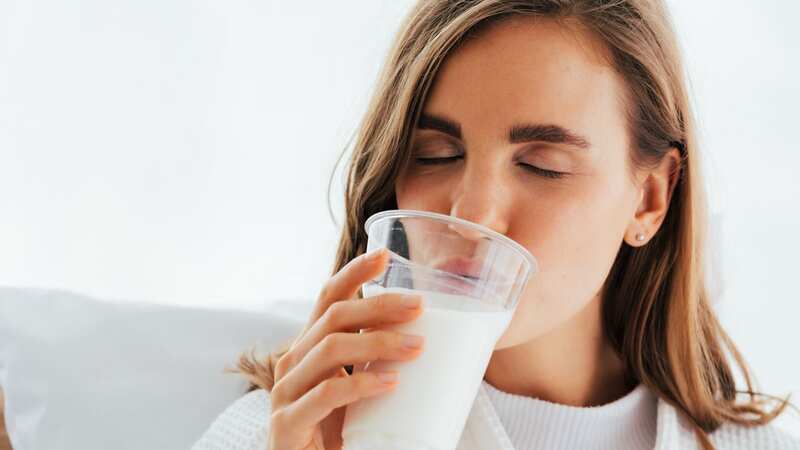Drinking a glass of milk a day 'cuts risk of killer heart attacks'
Drinking just one glass of milk every day could help you avoid serious heart problems, a new study has found.
Regular drinkers were found to have lower levels of cholesterol - which can cause blood clots. They also slashed their risk of coronary heart disease by 14 per cent, say scientists. The study is based on almost two million people in Britain and the US - the biggest of its kind.
Those with a mutation enabling them to consume large quantities of the 'white stuff' were less prone to cardiovascular illnesses. Dairy products have long been seen as bad for health. But growing evidence suggests this idea is false.
Lead author Professor Vimal Karani, a nutritionist at Reading University, said: "We found among participants with a genetic variation we associated with higher milk intake, they had higher BMI and body fat - but importantly had lower levels of good and bad cholesterol. We also found those with the genetic variation had a significantly lower risk of coronary heart disease."
He also added: "All of this suggests that reducing the intake of milk might not be necessary for preventing cardiovascular diseases." The international team pooled data from the UK Biobank study, the 1958 British Birth Cohort and the Health and Retirement study in the US. They found no link between regular consumption and increased levels of cholesterol.
 Dr Michael Mosley shares exercise that can cut cholesterol and blood pressure
Dr Michael Mosley shares exercise that can cut cholesterol and blood pressure
Those who downed high amounts had lower levels of the blood fats. They included the bad 'LDL' type that clogs the arteries and the good 'HDL' version that takes it away. In addition to this, a detailed look at more research discovered that people who drank lots of milk had a 14 per cent lower chance of getting heart disease.
The smart team of researchers decided to use genetics for their study. They examined a change in a gene related to how we break down lactose, which is the sugar found in milk and other dairy items. After studying this, they stumbled upon the fact that people who can effectively break down lactose tended to drink more milk, reports Bristol Live.
For quite a while now, we've all known that things like being overweight, having diabetes, and other health issues can often result from consuming too much dairy, including milk. But folks with a genetic mutation that lets them digest lactose were actually 11% less likely to get obese-related type 2 diabetes, according to the UK biobank data.
And contrary to what you might think, there's no proof that drinking plenty of milk boosts your chances of getting diabetes or inflammation, asserted Prof Karani. He added: "The study certainly shows milk consumption is not a significant issue for cardiovascular disease risk even though there was a small rise in BMI and body fat among milk drinkers."
He concluded on a note of care, pointing out: "What we do note in the study is it remains unclear whether it is the fat content in dairy products that is contributing to the lower cholesterol levels or it is due to an unknown 'milk factor'." Milk is not just good for your bones, it could also make you smarter! A study of nearly 1,000 people found that those who drank milk did better in tests that measured their ability to concentrate and learn.
Scientists think that certain nutrients in dairy products, like magnesium, might help keep our memories sharp. These nutrients could also protect us from heart disease and high blood pressure, which helps our brains work properly. When our blood flows better, it carries more oxygen to our brain. But, some experts warn that dairy products can cause heart disease because they have a lot of saturated fat.
The latest findings are published in the International Journal of Obesity.
Read more similar news:
Comments:
comments powered by Disqus


































